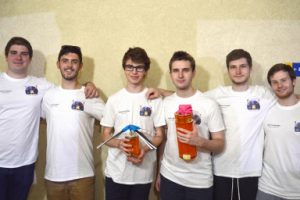Funding of £2.5m has been provided by the Natural Environment Research Council (NERC) and the Engineering and Physical Sciences Research Council (EPSRC) for the Centre of Doctoral Training in ‘The use of Smart and Autonomous Observation for the Environmental Sciences’, to be known as Nexuss (NEXt generation Unmanned System Science).
Southampton will take the lead, working in partnership with the British Antarctic Survey, Heriot-Watt University, the National Oceanography Centre, the Scottish Association for Marine Science and the University of East Anglia.
Drones and autonomous robotic submarines are widely used to host sensors for tasks such as monitoring air pollution or exploring the deep ocean. Nexuss will provide specialised training, with the aim of building “a community of highly skilled people whose expertise will contribute both to scientific breakthroughs and to economic growth”, said the University of Southampton.
Three annual intakes are planned of 10 PhD students each, starting in 2016.
The centre intends to provide environmental scientists with the skills to develop and deploy unmanned systems that will extend the range of research over both time and distance, into locations too dangerous or difficult for humans to reach.
Professor Alberto Naveira Garabato, from the University of Southampton and director of NEXUSS, said:
“It is an opportunity to develop a new generation of environmental scientists that is more aware of the vast possibilities that smart and autonomous observation systems offer. We are excited by our strong partnerships with industry, government and other stakeholders, which will allow us to better understand how to develop the leaders the UK needs to rise to future environmental challenges.”
Professor Duncan Wingham, NERC chief executive, said:
“Smart observation systems are a field in which the UK has world-class capabilities; I am delighted that NERC and EPSRC are investing in the skills needed to maintain this position.”
Professor Philip Nelson EPSRC’s chief executive and former pro vice-chancellor at the University of Southampton said:
“Centres for doctoral training are extremely popular with students and industry alike as they address real-world challenges and skills needs.”
Image: Southampton University
 Electronics Weekly Electronics Design & Components Tech News
Electronics Weekly Electronics Design & Components Tech News

